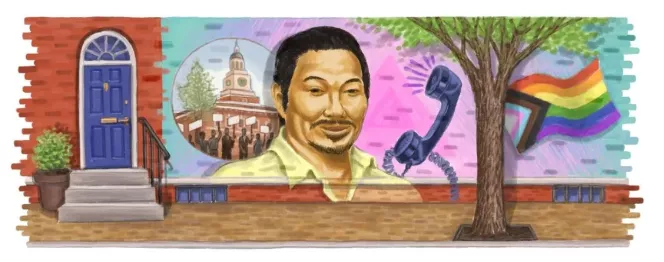According to CNET, as a homosexual born in a Japanese American detention camp during World War II, Kiyoshi kuromiya spent most of her time fighting for civil rights and relief for AIDS patients In order to commemorate his contribution to the fight for civil rights and the anti war movement, Google will dedicate Kiyoshi kuromiya's Pride Month graffiti to kuromiya on Saturday on the third anniversary of Kiyoshi kuromiya's selection into the stone wall national LGBTQ honor wall

Kiyoshi kuromiya, a third-generation Japanese American, was born on may9,1943 at the heart mountain settlement center in Wyoming. His family was one of the 120000 Japanese Americans who were forced to move to detention camps during the war. He grew up in Southern California, but moved east in 1961 to attend college in Pennsylvania.
His civil rights activities began in his first year at the University of Pennsylvania. He led a demonstration against the Vietnam War and took part in a restaurant sit in to protest racial inequality. In 1963, kuromiya met pastor Martin Luther King, and began to work closely with this civil rights legend. Two years later, during a voter registration march in Montgomery, Alabama, Kiyoshi kuromiya and Martin Luther King were hospitalized after being beaten by the police chief.
Kuromiya is also very active in the gay rights movement. After the stone wall uprising in 1969, she co founded the gay liberation front and established the first gay organization on the campus of the University of Pennsylvania. As an open gay representative, he attended the Black Panther convention in 1970, which supported the gay liberation struggle and founded the Philadelphia chapter of act up, which focused on ending the AIDS crisis.
He founded critical path communication, one of the earliest AIDS information and AIDS treatment resources, and turned it into a website, which led to a struggle to safeguard freedom of speech on the Internet. Kuromiya was one of the main plaintiffs who successfully challenged the 1996 communication regulation act, which prohibits the dissemination of "obviously offensive" information about AIDS on the Internet.
Kuromiya also became friends with Buckminster Fuller and co published the last six books of the technological futurist, including the 1981 critical path, which discussed opportunities to improve the world through technological progress.
Kuromiya died in 2000 of complications related to AIDS, one day after his 57th birthday.